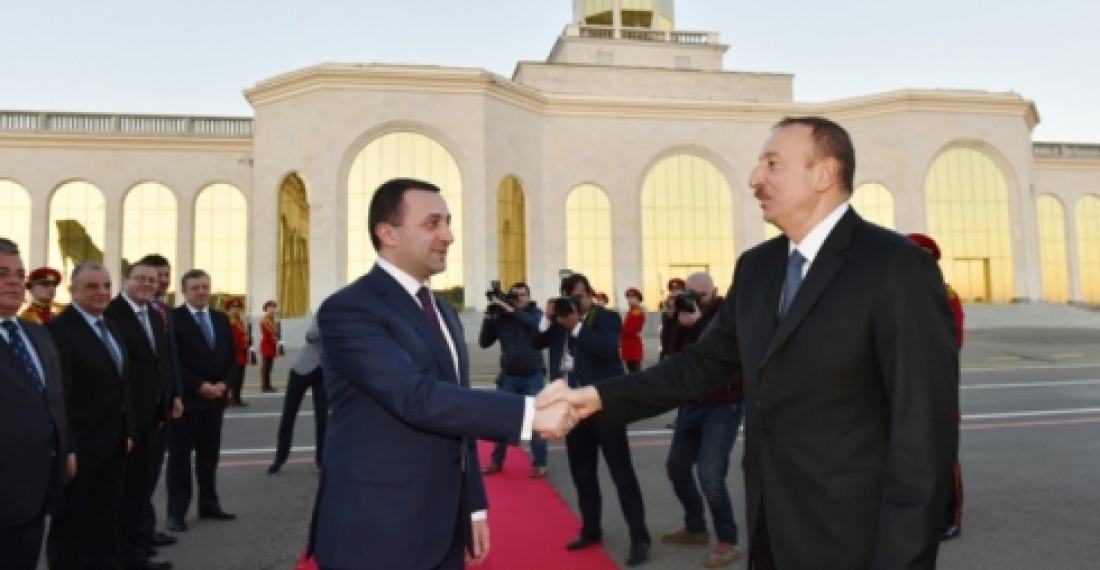This is a commentary prepared by the editorial team of commonspace.eu.
The visit of President Ilham Aliev to Georgia on 5-6 November marks a high point in relations between the two countries. It reaffirmed the deep friendship between the two neighbouring nations. The governments of the two countries describe the relationship between them as "strategic". This term is often overused in diplomacy, but on this occasion it aptly describes a relationship that is helping to define the future of the South Caucasus.
In Tbilisi, President Aliev met with President Giorgi Marghvalishvili, Prime Minister Irakli Gharibashvili, and Parliamentary Speaker Davit Usupashvili. He also met Catholicos Patriarch Ilia II and former Prime Minister Bidhzina Ivanishvili - a recognition of the important role that these two personalities play in Georgia's public life.
On the occasion of the visit, President Marghvelashvili and President Aliev issued a joint declaration in which they stated that "the two countries hereby proclaim that they continue to strengthen the present level of strategic partnership aimed at elevating their relations by deepening and broadening cooperation in fields of mutual interest, both in the bilateral and international fora". The declaration goes on to list four key areas where this co-operation and partnership will focus on, namely (a) political; (b) economy and trade; (c) defence and security; and (d) Science, education and culture.
The two countries already have two decades and more of experience of working together as independent sovereign states. The Baku-Tbilisi-Ceyhan pipeline is a living symbol of how that co-operation can be of benefit to both countries. It was the first of many ambitious projects that were subsequently implemented together, or are in the process of being so. Azerbaijan and Georgia also co-operate closely with Turkey in both a bilateral and multilateral format.
Regional co-operation is the basis on which the future of the South Caucasus needs to be built. The Georgia-Azerbaijan strategic co-operation is rightly seen as the bedrock for future co-operation, and indeed for the future prosperity of the region and its people. The wider geo-political context in which this co-operation is developing is however not simple.
The last paragraph of the declaration agreed in Tbilisi on 5 November states, "The strategic partnership between the two countries is not directed against any other State or group of States, and does not infringe upon their rights or commitments under bilateral or multilateral international agreements in force to which they are Parties". Georgia, whilst very keen to develop its strategic partnership with Azerbaijan, also wants to maintain its good relations with Armenia. It was perhaps a coincidence, or perhaps not, that Armenian President Serzh Sargsyan visited Georgia a few days before President Aliev (see commonspace.eu commentary on the visit here). Georgia rightly needs to balance the relationship with its two neighbours, and if possible contribute towards a rapproachment between them. On its part Azerbaijan does not want its special relationship with Georgia to upset Russia. It similarly could play a role in maintaining lines of communication open between the Georgian and the Russian leaderships.
There are also issues in relations between Georgia and Azerbaijan that the two sides need to manage properly. These range from border demarcation to the issues related to the large population of Azerbaijani ethnicity in Georgia. The two sides will do well to give proper attention to these matters and to ensure that problems are dealt with in a timely fashion and not allowed to fester. The two countries also have different governance models and foreign policy orientations. Only by basing their relationship on mutual respect will they be able to ensure that these differences will not become an obstacle in their relationship.
On the whole however, it is possible to say that the visit of President Aliev to Georgia this week has been a huge success, and opens new horizons not only for bilateral co-operation between the two countries, but also for regional co-operation - an essential ingredient for peace and prosperity in the Caucasus.
source: This commentary was prepared by the editorial team of commonspace.eu.
photo: President Aliev of Azerbaijan with Prime Minister Gharibashvili of Georgia in Tbilisi on Friday, 6 November 2015. (picture courtesy of the press service of the president of Azerbaijan).







